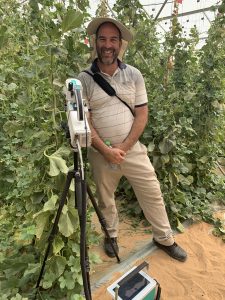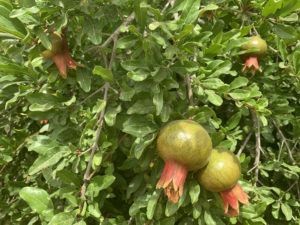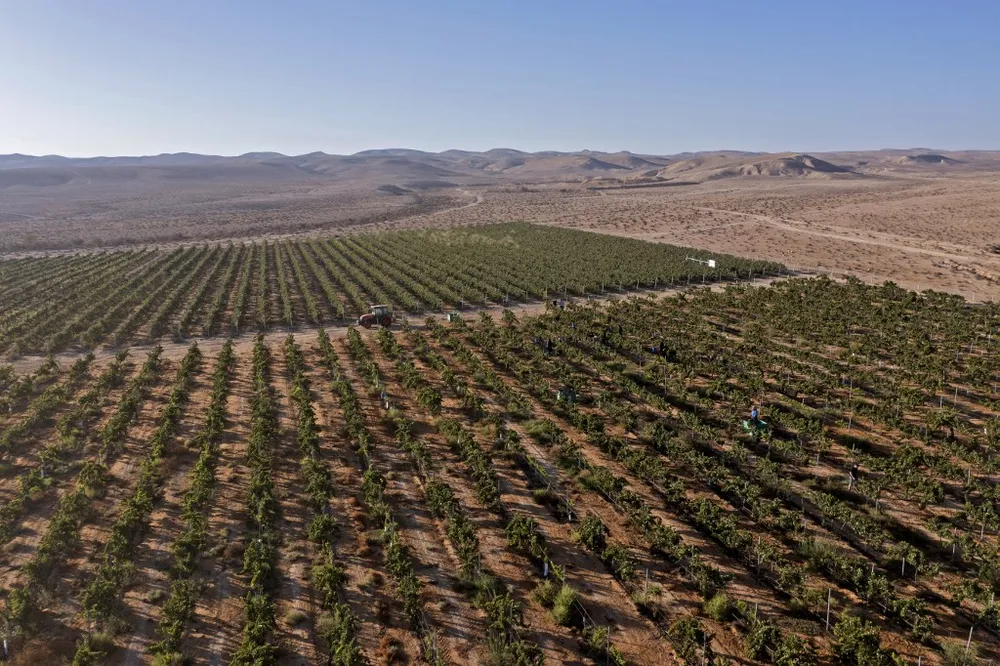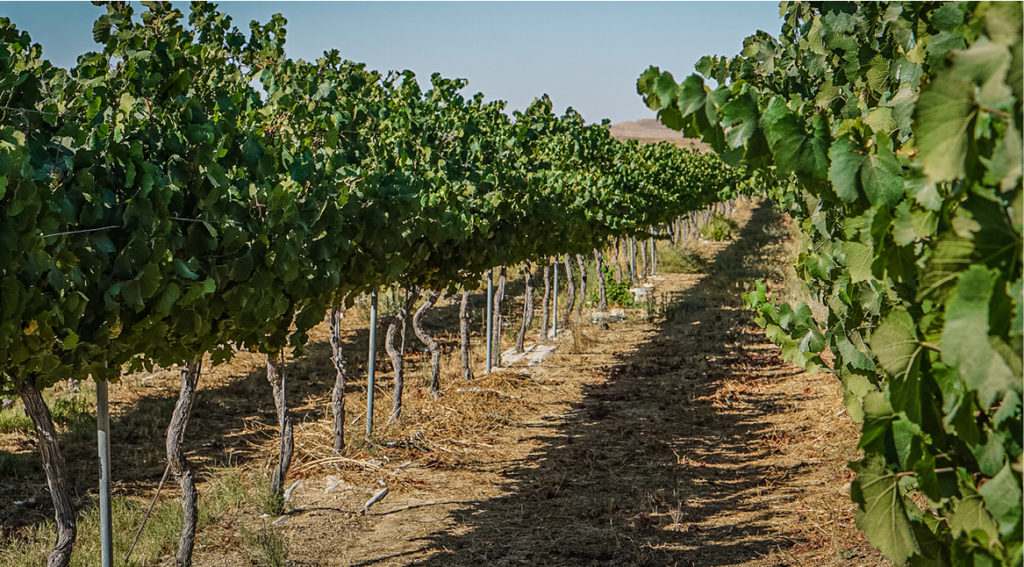
Unusual Crops Could Become Climate Saviors
Unusual Crops Could Become Climate Saviors
January 7, 2020
By Jenny Morber, a 2019 Americans for Ben-Gurion University Murray Fromson Journalism Fellow
ENSIA – Researchers at Ben-Gurion University of the Negev are currently looking into how lesser-known crops that thrive under adversity can help make our global food supply more resilient to climate change.

Prof. Naftali Lazarovitch, of BGU’s Jacob Blaustein Institutes for Desert Research, works with Negev farmers to improve crop output in adverse conditions.
In southern Israel’s stifling heat, rows of salicornia, commonly known as sea asparagus or sea beans, grow under translucent tarps, planted into ground more sand than soil, irrigated with saltwater. This environment would kill most plants, but these segmented succulents look beautiful — green and healthy.
These researchers’ efforts are defining what extremes the plants can withstand, their nutrient needs, and how to get them to grow faster and with greater yield. As the planet warms and the seas rise, resilient crops like sea beans might become climate saviors. But only if we are willing to eat them.
Climate change is already affecting our food supply. In a paper published this year, researchers calculated that the available calories from the world’s top 10 food crops were 1% less annually than they would have been without the impact of climate change.
Food crops that can withstand extreme conditions will be increasingly important, and much discussion around climate-friendly food focuses on consumer choices and what they mean for broader adoption of these crops.
Plants’ ability to withstand extreme conditions will become critical. Scientists are working to increase hardiness in today’s staple crops like wheat and corn through gene editing, genetic engineering, and traditional breeding to increase the efficiency of photosynthesis, reduce water requirements and resist pests.
Not all climate-resilient foods are new and unusual. Okra, mushrooms, sweet potatoes, and pomegranates are all resilient choices in many regions. So, too, are edible “weeds,” such as dandelion and burdock, which are hardy enough to survive our efforts to eliminate them. Yet as warming gets more extreme, researchers say we may have to adopt less familiar foods.
For many people that won’t be easy. What we eat has deep cultural significance, rich in memories and meaning. We cling to what we know, and changes require work. Then there are economic considerations. When people are concerned about the economy, food choices based on environmental impacts can take a back seat to simply putting enough food on the table.




